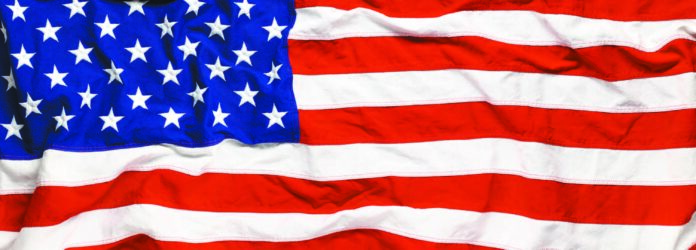Every June 14, we mark Flag Day—a quiet holiday, often overshadowed by the pageantry of the Fourth of July. But maybe that quietness is part of its power.
The American flag isn’t just a banner flown over battlefields or ball games. It’s a symbol that—at its best—holds space for all of us: the farmer and the factory worker, the activist and the veteran, the newcomer and the descendant of centuries here. In its stripes and stars, we can find not just history, but hope—a shared commitment to becoming a more perfect union, together.
The Pledge of Allegiance is something many of us grew up reciting in school or hearing at public gatherings. Its words are so familiar that we sometimes forget their meaning. But taken slowly, phrase by phrase, they offer a vision for what the flag—and this country— can represent.
“I pledge allegiance to the flag of the United States of America…”
What does it mean to pledge allegiance in a country as diverse as ours? It’s not blind loyalty, but a conscious commitment to a shared vision. The flag represents a nation made up of many voices, stories, and identities—woven together not despite our differences, but through them. Allegiance here means leaning in, not walking away, even when we disagree.
“…and to the Republic for which it stands…”
The word republic reminds us this isn’t just a piece of cloth or a patriotic ritual—it’s a promise. A republic is a system of shared responsibility, where every person has a voice and a role. The flag isn’t a trophy we wave to show victory over others—it’s a signal of stewardship, of caring for a country that belongs to all of us.
“…one nation under God, indivisible…”
These are aspirational words. We aren’t always indivisible—we know that. But the flag reminds us of our duty to strive toward that ideal. Whether we interpret under God through faith, conscience, or shared values, it calls us to humility and accountability—to something larger than individual ego or party lines.
“…with liberty and justice for all.”
This is the heart of the pledge— and the heart of the flag’s meaning. For all doesn’t mean for some, or for those who agree with us. It means standing up for each other’s freedoms, even when it’s uncomfortable. Liberty and justice are not finite—they grow when shared. They challenge us to build a community where everyone feels seen, valued, and protected.
Of course, not everyone experiences the flag—or the words of the pledge—in the same way. For some, these symbols are deeply personal, rooted in service, sacrifice, and pride. For others, especially those whose communities have faced exclusion or injustice, the flag can evoke both hope and heartache. Acts of peaceful protest, like kneeling during the national anthem, are not rejections of the flag, but calls to fulfill the values it stands for. In that way, even dissent becomes a form of devotion. It reminds us that liberty and justice must be pursued, not presumed—and that true patriotism makes room for questioning, grieving, and growing.
As we reflect on the meaning of the flag, it’s worth remembering that there is a code—a set of guidelines—for how we honor it. The U.S. Flag Code outlines practices like standing in respect during the national anthem, not letting the flag touch the ground, and displaying it with care and dignity. But beyond those practices, it’s the spirit behind them that matters most. Respect for the flag means striving to live up to the ideals it represents. Even the way we retire a flag is deeply symbolic: when it becomes worn or tattered, it is not discarded, but laid to rest with honor in ceremonial services, often led by veterans or civic groups. These rituals remind us that symbols matter—and that how we care for the flag reflects how we care for the ideals and people it stands for.
This Flag Day let’s fly the flag not just as a decoration, but as a declaration—a commitment to each other, to the messy and beautiful work of democracy, and to a future where our differences aren’t erased, but honored. In a time of division, may our flag remind us that unity doesn’t mean uniformity—and that a truly united nation is one where every voice matters.
Submitted by Julie Luchsinger on behalf of Two Harbors Breakwall Indivisible





